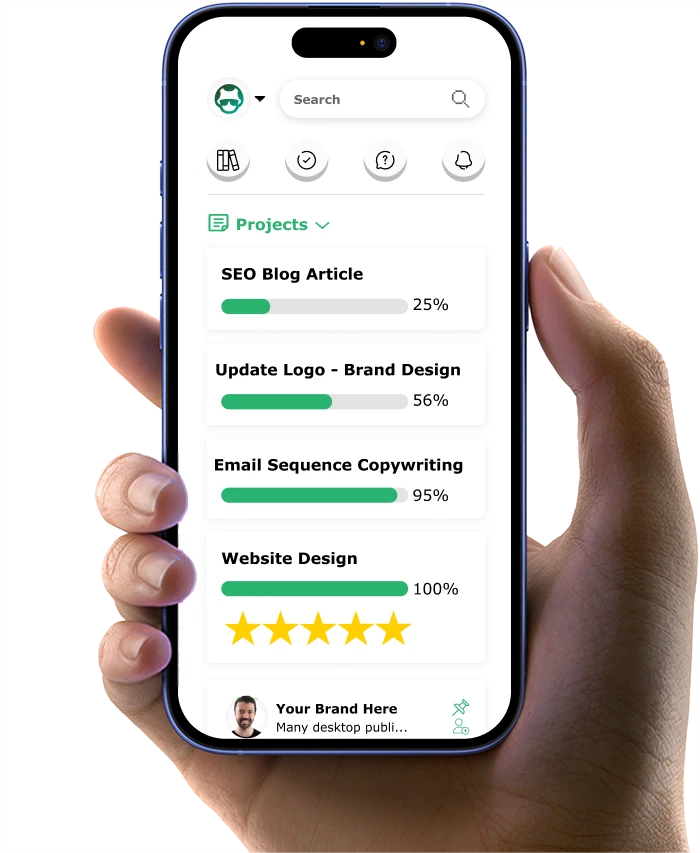ROUND UP: What's Working for SEO in 2018? 6 Experts Weigh-In
A few weeks ago, I answered a question from a student of our funnel training who wanted to know how to rank a single blog post for multiple keywords.
My response? At Growbo, we don’t try to rank a page for multiple keywords — we only choose one. When you write naturally, with your target market in mind, you don’t need to saturate your content with buzzwords. Your audience is drawn in organically.
Because the first step in any sales funnel is brand awareness, I thought it would be useful for our readers if we expanded on this topic a bit. I reached out to six SEO experts to get their thoughts on SEO tactics in 2018 and where they see trends going in the future.
Their answers were insightful - and sometimes surprising.
Here’s what they had to say about growing your traffic right now.
[wufoo username="petovera" formhash="qbera1c01ig9lq" autoresize="true" height="259" header="show" ssl="true"]
Expert #1 - “I think link building is still relevant in SEO, up to a point.” - Patrick Langridge, Head Of SEO Operations at Screaming Frog
Patrick Langridge lives in the UK, working as the Head of SEO at Screaming Frog - a highly successful search marketing agency. As of this interview, he’s been with the company for seven years and says he feels lucky to work with such an awesome team. Outside of work, he’s a fan of Arsenal F.C., who he deems “by far the greatest team” (a topic we will gladly debate).
His take on SEO tactics in 2018:
“I think link building is still relevant in SEO, at least up to a point – my belief is that you need links to have a chance of competing. You need them to ‘get into the conversation’ so to speak, but when you’re there, links are perhaps meaning increasingly little. To give an example, site A with 500 referring domains will almost certainly rank much better than site B with 50 referring domains. But, if site C with 400 referring domains has better and more relevant links than site A does, and is also faster and offers a better experience for users, it’s likely that site C will rank better. There are obviously lots of caveats within that example, but I do see this as a model which Google is moving towards.”
Where he sees SEO in the future:
“As an agency, Screaming Frog is investing more in understanding user experience, CRO, and user behavior analysis. The trends we see with Google’s now regular quality refreshes indicate that these facets are becoming increasingly important if you hope to compete in the organic search results. Users are demanding, and the bar has been raised over what is ‘acceptable’ to users, so if your website falls short, you could face an uphill battle.”
The bottom line:
SEO is always evolving, and you have to stay on top of the trends to remain relevant. What has worked in the past won’t necessarily work now (like link saturation), so keep growing and learning.
Expert #2 - “AMP is even more relevant now, so I’m going to say it’s a must-have for people.” - Jordan Kasteler, SEO Director of Hennessey Consulting
Jordan Kasteler (SEO pro) works as an independent consultant and entrepreneur after many years in corporate America, including Hennessey Consulting. His primary focus is developing linkbait content and promoting it with social media.
His take on SEO tactics in 2018:
“As we move to a mobile-first index, Google has announced PageSpeed as a factor. In my opinion, that makes Accelerated Mobile Pages (AMP) even more valuable. So, I'm going to say it's a must-have for people, (in addition to) HTTPS which Google is pushing people to.”
Where he sees SEO in the future:
“Content marketing has a LONG ways to peak. There are still so many FAQs to be answered and skyscraper content to create. It's just a matter of putting in harder work and getting more creative. Interactive content will be a big part of the future.”
The bottom line:
Content marketing hasn’t peaked - far from it. There are still a lot of unanswered questions and evolving attitudes. The key is to stay creative and try new things.
Expert #3 - “It’s about creating the best, deepest, and most valuable piece of content.” - Tadeusz Szewczyk, OnReact.com
Tad Szewczyk is an independent blogger, social media manager, and search engine optimizer for hire. He helps make people, ideas, and things popular. He is the social media and search specialist of OnReact.com.
His take on SEO tactics in 2018:
“Let me clarify first that I was never convinced that it is sheer content length or size that leads to higher rankings, despite the numerous correlation studies.
I know the guy who started the incredibly long content trend. It was Brian Dean of Backlinko.com! He still ranks in the top three for [link building] on Google, as seen from Berlin, Germany, where we both live. It must still work then. Is it only the length that made him succeed? Hardly!
Also, what length do you refer to? Is it the word number or the height in pixels you have to scroll through? In case it's really the length, it's probably the length in hours he invested into that particular piece of content.
Brian Dean has been the first person to work 60, 80, or 100 hours on a single article to make it the size of a truly ultimate guide. He spends most of his time on research, outreach, and planning. This is the approach that still makes sense for Google and beyond.”
Where he sees SEO in the future:
“It's about creating the best, deepest, and most valuable piece of content.
This ‘highest quality content’ approach still works in 2018 and will next year as well. On the other hand, with most people searching the web on mobile now, length and scrolling can backfire.
Huge content can be very burdensome on mobile devices, despite the ever increasing display sizes. You simply do not want to read too long articles on your mobile phone. It's bad for the eyes and your attention span is shorter.
It's important to focus on depth in 2018.
Create the best overview that summarizes a lot of redundant information into an easily digestible piece. Create the best content by translating the most accurate data. Be the first to cover a topic in-depth and provide a thorough analysis without blowing it up artificially.
Video is apparently working better and better as well, especially when you use Google's own video hosting site, YouTube. Again Brian Dean is showing how it is done by ranking #1 both on Google and YouTube.”
The bottom line:
It’s about quality, not quantity. While writing a huge blog post might work for some, it’s not necessarily the answer to better rankings. Instead, focus on putting out informative, useful content that will help you connect with your audience.
Expert #4 - “What is working for ranking websites is a comprehensive or holistic approach to SEO that is white hat.” - Chris Dreyer, Founder and CEO of Rankings.io
Chris Dreyer, Founder and CEO at rankings.io, helps law firms grow their business with first-page rankings. His objective? To lead the legal SEO industry without sacrificing transparency or integrity.
His take on SEO tactics in 2018:
“Before I talk about what works, I’d like to address the concept of personalized search and how that impacts businesses overall when it comes to marketing with SEO. When personalized search first became a thing back in 2009, those businesses marketing themselves in search were worried that personalization would mean that having relevant and well-produced content didn’t matter. That somehow any content that existed first and that got clicked on by users would somehow secure a spot in users’ personalized search results pages, never to be dislodged by competitors.
Fortunately for businesses and those in the SEO community, that is not how personalized search works. Yes, Google places a cookie in users’ browsers when any search is performed, and yes, results are personalized based on what you’ve clicked on before, but that does not mean Google will throw out other results that could be a better fit for a user’s query in the name of personalization.
Google uses hundreds of factors in its algorithm of which personalization is just one. Google engineers have also stated publicly that the top ranking factors are content, links, and RankBrain. The RankBrain portion of their algorithm actually looks for content that could be related to a query, but that may not be directly about what a user searched for. These elements have nothing to do with personalized search and will probably trump it.”
Where he sees SEO in the future:
“What is working for ranking websites is a comprehensive or holistic approach to SEO that is white hat. Google has implemented some very sophisticated updates to its algorithm that weed out web spam, making it harder to game the search engine for any prolonged period of time. Site owners need to focus on basic onsite optimization, earning high-quality and contextually relevant links, creating a consistent and strong web presence, and making sure the content they produce is the best possible source on the internet for what they are talking about.”
The bottom line:
Find your niche and don’t stray from it. Being a jack-of-all-trades doesn’t work - you need to be the best at what you do and put out truly quality content.
Expert #5 - “Creating incredible, lengthy, and detailed content, while powerful now, is going to become even more powerful in the near future.” - Tyler Sass, Logic Based Marketing![Tyler Sass, marketing expert.]()
Tyler Sass, professional mentalist at the Magic Castle, is also a wizard when it comes to marketing. As the owner of Logic Based Marketing, he uses persuasive messaging to help connect businesses with customers.
His take on SEO tactics in 2018:
“Let me tell you something...THIS IS THE GOLDEN ERA of content marketing and it's all thanks to RankBrain. As RankBrain becomes more and more important as a ranking factor, what real humans (not robots) like most will rank higher and higher.”
Where he sees SEO in the future:
“This means that creating incredible, lengthy, and detailed content, while powerful now, is going to become even MORE powerful in the near future. If you want to do SEO in 2018, the key is long, detailed, evergreen content targeting medium tail keywords and becoming the best possible answer to that medium tail keyword.”
The bottom line:
Quality content and medium tail keywords are important now and are only going to become MORE important.
Expert #6 - “Seo is about more in-depth pieces that cover a lot of long tail related topics in a smartly integrated way.” - Eric Enge, Founder and Ceo of Stone Temple Consulting
Eric Enge is a researcher, writer, speaker, and founder and CEO of the award-winning firm, Stone Temple Marketing. As a team, they aim to advance the science of SEO.
His take on SEO tactics in 2018:
“Building a great deal of content is working extremely well for SEO.”
Where he sees SEO in the future:
“I don’t think it’s a good idea to build out super long tail pages in great bulk. It’s more about more in-depth pieces that cover a lot of long tail related topics in a smartly integrated way. That appears to be working quite well these days.”
The bottom line:
Don’t push out a ton of sub-par content just for the sake of quantity. Instead, focus on creating fewer, but higher quality long tail pieces.
CONCLUSION
For more tips on growing traffic at the top of your online sales funnel, subscribe to Growbo’s newsletter here.
The experts agree - content marketing is far from dead. In the always-changing world of SEO, that one thing seems to hold constant. Here are some takeaways:
- Create useful, informative content to help connect with your audience and gain traction.
- Concentrate more on quality than quantity - pushing out a ton of poorly-researched junk isn’t going to impress anyone.
- Continue to watch trends and see what impresses audiences today. The popularity of things ebb and flow, so you need to be aware of what is working RIGHT NOW.
How do you feel about SEO in 2018?
Are you making any changes to help improve your search rankings or better connect with customers? What do you find best resonates with your audience right now?
Let me know in the comments.
Keep Hustlin’, Stay Focused,
—Matt




















